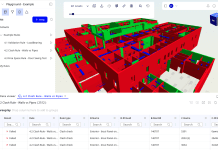It is no secret that construction variations commonly cause delays and disputes in the industry, quickly transforming what might have been a relatively straightforward project into one with unmanageable complications. So how can variations be managed more efficiently and effectively?
In a recent webinar hosted by Payapps, a group of industry experts – Iain McIlwee (CEO, FIS), Bill Bordill (quantum expert, Decipher) and Kevin P’ng (commercial director, BW Interiors) – discussed the impact of variations within the built environment. The panel debated whether variations are one of the most serious risks faced when it comes to the success of construction projects.
The impact of construction variations
Speaking first, Iain McIlwee explained why risk in construction falls into four main categories: design, quality, time and price. Variations can be hit in any one of these four areas, so is a pressing concern.
But what is a variation? Bill Bordill described variations as being “any change to the price, the quality or time allowed to carry out the contract works”, and listed common variations as being:
- Instructions from the contract administrator, the architect or the engineer.
- Changes to the drawings.
- Changes in site or work management methods and procedures stated by the employer.
- An instruction to expend provisional sums.
- Changes in statutory requirements or regulations.
- Discrepancy in or between contract documents.
During the webinar, live audience polling revealed “the time it takes to administrate” variations was a key challenge for 32%. A staggering 45% stated that the main issue variations cause is inaccuracy, and therefore a subsequent lack of information.
What is the cost of variations?
As Bill Bordill highlighted, variations are often due to planning or drawing changes, or as a result of vague instructions from contract administrators. Variations are sometimes unavoidable because of existing supply chain issues or challenges relating to materials or labour. As such, this is causing an extremely challenging trading environment for construction businesses.
That said, it is possible to avoid some common causes of variations. Kevin P’ng made the point that clients and end users could each play their part in minimising variations: “More and more end users are rushing to market and are keen to make a start for the sake of progress. However, if we give ourselves more time front-end to absorb and ratify changes or variations, it can help mitigate the volume of variations and the impact of them.”
Construction projects can only get off the ground if all parties collaborate to accomplish a common goal. However, variations, when they do occur, can still cause project delays and are no doubt a key factor behind the many projects that fail to complete on time.
Ian McIlwee spoke about the industry as a whole saying: “I think we’re still very much lost and immersed in this late payment issue, and I think late payments, fair payments and variations all get tied up together.”
But how often do variations cause late payments? Some 64% of poll respondents in the webinar’s audience claimed variations cause payment delays “very often” or “often”.


Managing and mitigating the impact of construction variations
Storing information across multiple spreadsheets is a traditional way of working when it comes to managing variations, despite the risk of miscommunications and delays.
When the webinar’s audience was asked about their management of variations, only 10% stated they use software such as Payapps, even though such solutions are designed to standardise and automate the variations process.
Aligned with that 10% is Kevin P’ng – BW turned to Payapps during Kevin’s time as commercial director to help digitise application for payment processing and improve the management of variations.
Kevin explained how shifting away from the “safety blanket of Excel” was necessary for BW.
“In simple terms, Payapps has allowed us to communicate to our supply chain more efficiently. Not only is Payapps simple to use and monitor, but the huge benefit has been the visibility it has afforded us,” he said.
“At any one time, management can dive into projects and see important information very quickly, or we can see there is a red flag. In the past, this was stuck in emails or Excel documents.”
How can technology help manage construction variations?
A significant part of the webinar’s discussion centred around visibility, transparency and collaboration as fundamental tools in the battle with variations. Across the industry, there are already signs of positive changes and transformation – but can technology speed this up?
The webinar’s panel members were all in favour of technology, with Iain McIlwee sharing his experience: “Everybody’s got different systems and different processes. If we could bring more consistency into the industry, that would help – technology is a key driver to doing this.”
The industry, however, is still working towards the acceptance of technology and Kevin P’ng shared the following insight: “A foundation for construction is people and their relationships. Perhaps that’s why we refrain from embracing technology wholeheartedly. But construction needs to look outside of our bubble and see how others have done it and steal some ideas for how we can work more efficiently and more effectively.”
Yet when the webinar audience was asked if they thought technology has a part to play in improving the management of variations, the responses were (almost) unanimous – 99% responded “Yes”.
So traditional methods are being questioned by forward-thinking individuals in order to increase the likelihood of project success. Those who want to reduce the risk of delays and disputes are turning to cost-effective solutions for managing challenging processes in construction; processes like managing variations and applications for payments.
To hear more from the expert panel, watch the full webinar recording Managing Construction Variations.
Chloe Leigh
Head of Marketing, UK
Tel: 0191 651 1765
*Please note: This is a commercial profile





![[Video] Fireco: 80 new fire doors required for residential flats in London](https://www.pbctoday.co.uk/news/wp-content/uploads/2025/04/2024-06-01-Lords-view-one_1200x750_004-218x150.webp)








